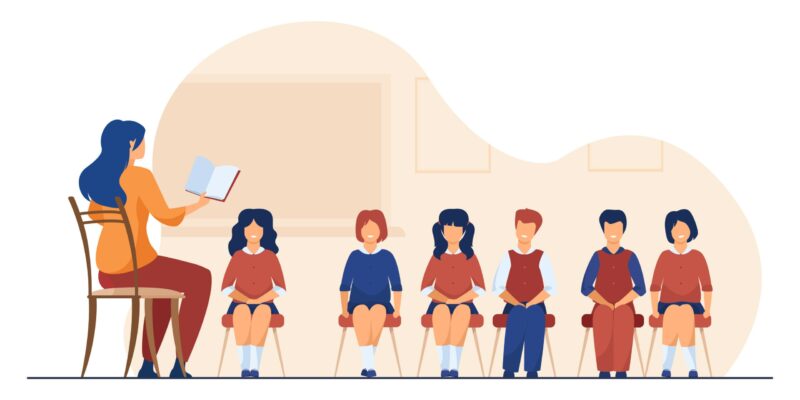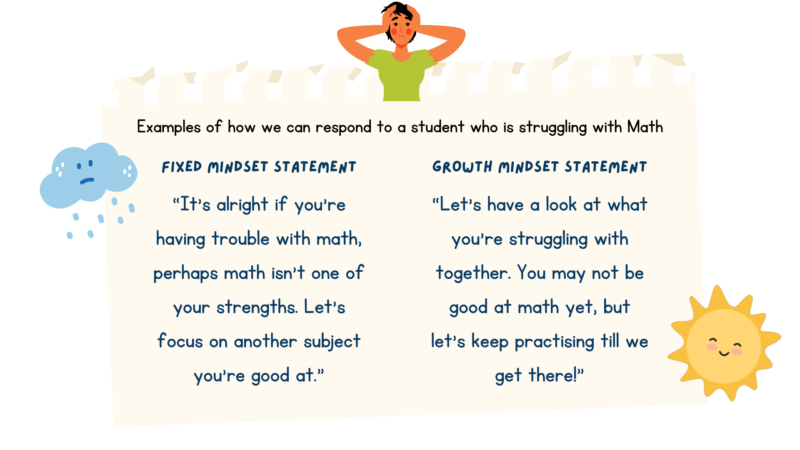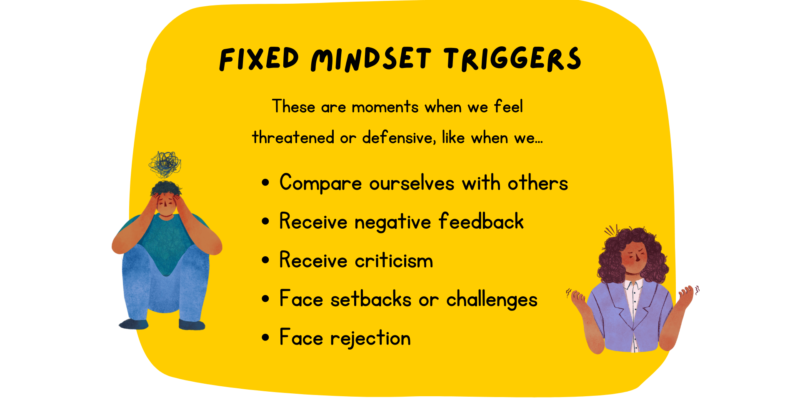Almost all educators have heard of the growth mindset, based on the work of Carol Dweck¹. Even those who are vaguely familiar with it would agree that it will be good for students to develop a growth mindset. In recent years, schools have invested much resources into helping students develop such a mindset, with varying degrees of success. Ongoing research by Dr. Dweck sheds light on where that investment would reap the most results. Spoiler: It’s not the students.
The one thing that matters

In her book Mindset: The New Psychology of Success, Dr. Dweck discusses how influential teachers’ mindsets are in shaping their view of students and their approach to developing them.
Among teachers with a fixed mindset, they tend to believe that a student’s intellectual ability determines their achievement, and talent is inborn, not a quality that can be acquired. Improvement and effort means little to them if they believe that a student’s path is set depending on their existing abilities and talents. Their role is simply to impart knowledge.
This results in an atmosphere of judging within the classroom. Based on students’ performance, teachers decide which ones have or do not have the potential to succeed, then allocate resources accordingly.
Conversely, teachers with a growth mindset pay less attention to their students’ intellectual ability and talents, focusing more on the potential each is capable of achieving. They believe that everyone can improve no matter where they start. Their goal is to encourage learning among students, and to support them along the way.
In these classrooms, a challenging yet nurturing atmosphere is created. They show genuine care and concern for their students’ growth. They are not afraid to raise the bar for their students, even for lower achievers, ensuring that every student is provided with the means to succeed.
The differences between these two types of mindsets among teachers can lead to very different student outcomes. For instance, let’s say a student is struggling in math and comes to you for help. If you respond to the student’s questions in annoyance or imply that they cannot improve, it may lead them to believe that their math ability is innate and fixed, hence they remain stuck and eventually give up. However, if you respond with patience and provide realistic encouragement, it signals to them that with effort, it is possible for them to improve their math abilities. As a result, this creates an opportunity for improvement!

Teachers, your mindset matters. How you view your students and the environment you build in the classroom can either support or hinder students’ growth mindset development. This is a tall order to fill, but fret not, as we’re here to help. Here is a practical first step you can take to develop a growth mindset!
The one thing you can start to do

Before trying to fix your students’ mindsets, take a step back to consider your own beliefs. In an interview², Dr. Dweck emphasised that we are all susceptible to fixed mindset triggers – things that cause us to shift our mindset away from thinking that our abilities and talents can be improved.

As teachers, there is a great deal of pressure to perform, and that could create moments that trigger you into a fixed mindset. When you get a bad grade in your assessment, or when you see a teacher who looks like they are running and handling their class seamlessly, but meanwhile you are struggling to get your class’ attention; these can potentially cause you to doubt your abilities. You may start to hide your struggles or shy away from feedback, for fear of being judged.
Having a fixed mindset about your own teaching abilities can be very discouraging every time you struggle. Furthermore, if this is the view that you have of yourself, there is a likelihood that you may project this same mindset onto your students’ learning abilities as well.
It is then important for you to recognise what your fixed mindset triggers are, and remind yourself that you have the potential to develop and improve your abilities. A key trait of a teacher with a growth mindset is that they love to learn – seek feedback from more experienced teachers, be willing to try new things, and expect mistakes as opportunities to grow. The endeavour to develop a growth mindset will require patience and grace to fail and learn, but with deliberate practice, these actions will pay off both for you and your students.
We are developing an approach towards growth mindset development that places educators at the center of the solution. Interested to learn more? Connect with one of our Consultants for a chat to discuss how Halogen can work with your school to develop a growth mindset in your classroom!
References:
¹ Dweck, C. S. (2016). Mindset: The New Psychology of Success. New York: Ballantine Books.
² Gross-Loh, C. (2021). Don’t let praise become a consolation prize. Retrieved from https://www.theatlantic.com/education/archive/2016/12/how-praise-became-a-consolation-prize/510845
